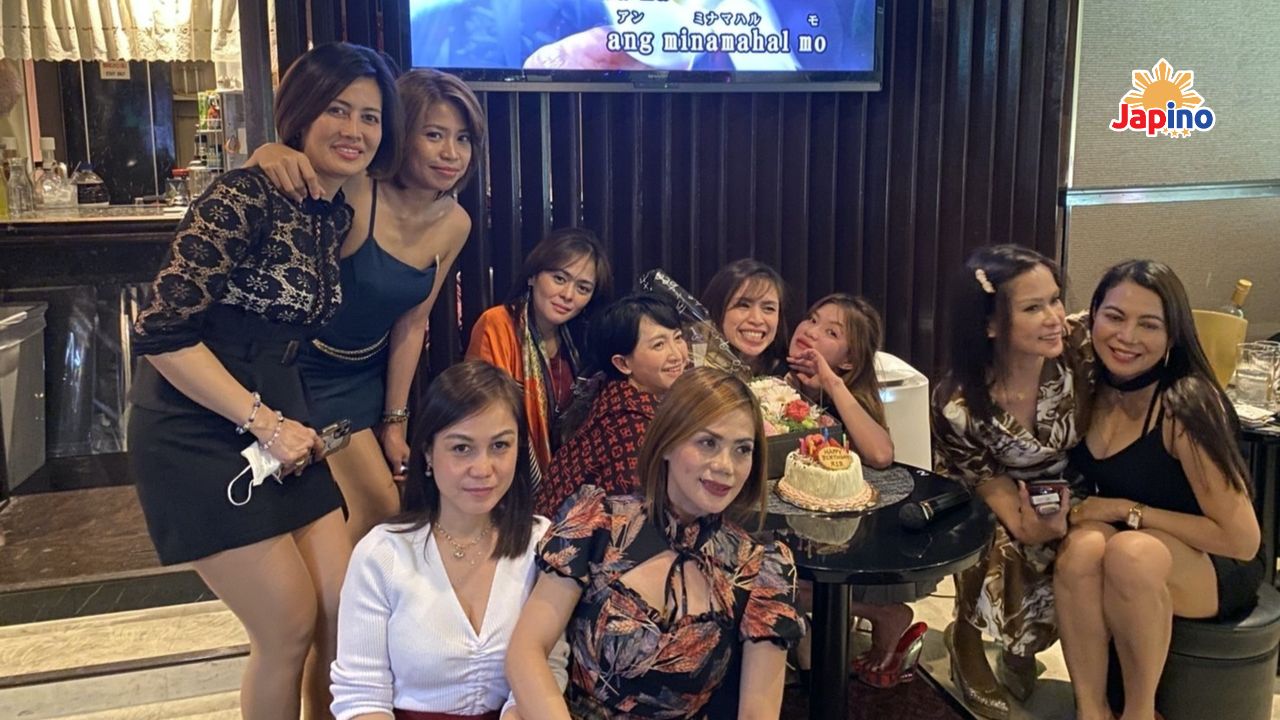FROM PUB WORKER TO CAREGIVER

Once celebrated, Filipino pubs had their heyday. The hostesses who worked there during those peak times have grown older and have now moved away from the nightlife, starting to excel in day jobs such as caregiving and factory work. Nerissa Ando and Belinda Nishime are among them. From their long-standing observation of Japanese society, they reflect on the evolution of Filipino pubs and the lives of those who came to this country as hostesses.
When asking Belinda Nishime (45), a Filipino working in a nursing home, about her job, she responded with surprisingly high enthusiasm. “All the grandpas and grandmas are so cute, they feel like my own family! Being with them warms my heart. I always hug them!”
Belinda has been in the caregiving profession for about two years now. It’s hard work—changing the diapers, bathing, feeding, and brushing the teeth of the elderly, some of whom are bedridden or wheelchair-bound. Yet, Belinda says, “I love the caregiving job.”
Nerissa Ando (51), another Filipino, has started working in a day service for a year, sometimes caring for elderly people with dementia. Speaking in a Nagoya dialect of Japanese, she says, “They become like children. You have to engage with them. You end up becoming a child yourself,” to which Belinda nods in agreement.
“They forget a lot of things. Going to the toilet, their son’s face. But some remember my face, and that made me happy.”
Originally hostesses at Filipino pubs, these women now find fulfillment in caregiving, seemingly as if it were their true calling. There is a nationwide increase in such workers. Women who came to Japan to work in pubs but, perhaps due to marriage, left the nightlife behind and when considering daytime work, chose caregiving. Having lived in Japan for a long time and being well-acquainted with how to interact with Japanese people, they have become a valuable “asset” to the labor-starved caregiving industry.
After leaving the pub post-marriage, Belinda used the “Job Seeker Support System” at Hello Work to obtain her Care Worker’s Initial Training Certificate (formerly known as Home Helper Level 2). With this qualification, she can perform direct physical care, broadening the scope of her work. She also re-studied kanji, which is essential for communicating with Japanese staff, especially for handing over tasks.
YAHOO NEWS & Black Cobra YouTube Channel
April 7, 2024
https://news.yahoo.co.jp/articles/1474f87347600911b980427abf5674335db15fb5








